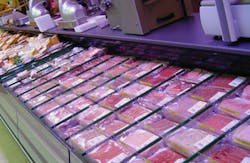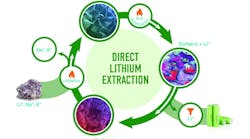The food packaging industry is constantly developing in the search for better properties and more advanced methods to protect products. However, many of these innovations are not familiar to consumers, who are often bewildered by new packaging and new prices.
According to research published in the Journal of Food Protection, consumers are willing to pay more for technologies that ensure extended shelf life for products, such as modified atmosphere packaging (MAP) for meat, once they know more about the technology itself.
The study examined customer perception of various innovative food processing technologies, such as using MAP for longer shelf life and using carbon monoxide (CO) for color stabilization. Researchers found that consumers preferred brighter red color and were prepared to pay an extra $.35/kg ($0.16/lb) on average for additional processing to have that preferred color.
However, many consumers proved less enthusiastic to pay more when informed about the addition of CO to achieve higher concentration in MAP. The negative attitude grows with gaining more knowledge about it and after media exposure, the study also noted. This suggested that the information regarding CO-MAP provided to consumers is not adequate to build trust in the reliability of this method of packaging, researchers concluded.
RELATED: Flexible packaging gains popularity among food and beverage makers
The results were based on an experiment on purchase decision conducted by Iowa State University, which took three stages. Participants were asked to look at 1-lb packages of lean ground beef in white foam trays covered in transparent film, taken from the local supermarket and from the university's meat laboratory. Before the start of the first stage, participants had no information about the products, apart from their price and expiry date — a situation that represents the majority of consumers in real market conditions. Participants were then asked if they were willing to pay extra for having products with extended shelf life — from the typical three days to between five and 14 days. The majority of participants declined paying more at this stage.
During the second stage participants were informed about the way MAP influenced product shelf life. Obviously, gaining understanding about the technology made people more receptive of it and they were ready to pay $0.34/kg for having a product with extended shelf life of up to 14 days.
In the last stage of the experiment, when respondents received information about CO concentration, the level of desire to pay additional sums of money for prolonged shelf life decreased again, to $0.13/kg, although this was still higher than in stage one.
As far as color preference goes, the research discovered that across all three stages consumers showed a preference for a brighter red color and were willing to pay extra money to get the color they liked. Even when they had information on the use of CO color stabilization, they still preferred the brighter meat, the study revealed.


